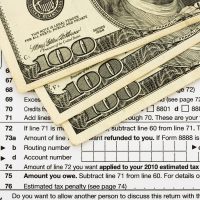Filing Your Income Tax After Divorce in New Jersey: Who Gets to Claim the Kids?

The process of divorce is complicated and filled with emotional and logistical challenges. A common question among divorcing parents is, “Who gets to claim the children on their taxes after divorce?” Read on for a discussion of this important topic, and call the Law Offices of John B. D’Alessandro in Union, New Jersey, for help with divorce, child custody, or other family law matters in Union, Middlesex, or Essex County.
Joint Custody and Claiming Dependents
In New Jersey, as is the case in many states, divorce decrees and custody arrangements often dictate which parent can claim the children as dependents for tax purposes. When parents share joint custody, it doesn’t necessarily mean that they can split the tax benefits equally.
According to the IRS, only one parent can claim a child as a dependent each year. In cases of joint custody, the right to claim the child usually goes to the custodial parent, i.e., the parent with whom the child spends the majority of their time. Per the IRS, if custody is shared equally, meaning each parent has the same number of overnights with the kids, then the tax break goes to the parent with the higher adjusted gross income.
Child Support Payments and Tax Claims
A related question that often arises is: “Do child support payments impact which parent claims the children as dependents?”
Child support payments themselves are not deductible by the parent who makes the payments nor are they considered taxable income for the parent who receives them. In the eyes of New Jersey law and the IRS, child support payments do not have a direct bearing on which parent can claim the child as a dependent.
Preventing Unauthorized Child Claims
How can you stop your ex-spouse from claiming your child on their taxes unlawfully? If you believe you have the right to claim your child as a dependent based on your divorce agreement or New Jersey law and your ex-spouse has done so without the right, there are steps you can take:
-
File your taxes correctly: If you are entitled to claim your child, make sure to file your tax return reflecting this. If you and your ex both claim the child and e-file, the second return will be rejected. In such a scenario, the person in the wrong will need to file an amended return. Processing times for both returns will be slowed down while the IRS determines which return is correct.
-
Document Everything: Ensure you have copies of your divorce decree, custody arrangement, and any other pertinent documents that provide clarity on the agreement.
-
Contact a Tax Professional or Attorney: The Law Offices of John B. D’Alessandro can guide you through these complexities. It’s essential to have an expert on your side, particularly if disputes arise.
Get Help With Complex Divorce Matters in Union, New Jersey
The tax implications after a divorce can be intricate, especially when children are involved. While the process may seem overwhelming, being informed and seeking the advice of professionals can make the process smoother. If you’re in Union, Essex or Middlesex County and need assistance with divorce-related tax issues, don’t hesitate to reach out to the Law Offices of John B. D’Alessandro at 908-964-0102 for comprehensive guidance and support.